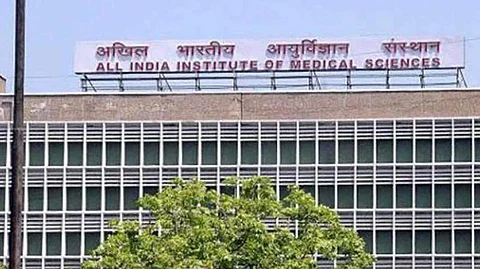

If the RT-PCR test comes out negative, but symptoms are present, it is recommended to go for another test, suggested All India Institute of Medical Sciences (AIIMS) on Saturday. The Central government institute also suggested to "immediately isolate yourself from others" if fever, dry cough, tiredness and loss of taste or smell, irritation in throat, headache, body ache, diarrhoea, rash on skin and redness is observed, clarifying that these are commonly observed symptoms among COVID-19 patients.
"80 per cent of infected patients experience very mild symptoms," said the AIIMS. Addressing a webinar on "Medication and Care in Home Isolation" for patients who are tested positive for COVID-19, Dr Neeraj Nishchal of AIIMS (Delhi) said: "The webinar was organized by the Centre of Excellence of the Union Health and Family Welfare Ministry."
"The medications are to be taken in proper quantity and at accurate timing. Knowing about the medicine is not enough; patients should also know how and when they are to be taken, only then would it prove to be beneficial," said Dr Neeraj. "The decision of home isolation for patients above 60 years and with co-morbidities like Hypertension, Diabetes, Heart Disease, chronic ailments related to kidneys and lungs, should be taken only after consulting doctors."
Explaining about some measures COVID-19 positive patients need to take, as part of managing the infection, the doctor said regular medicines should be taken and requirements for sanitization and cleanliness should be met. "Medical grade masks should be stocked in advance. We should plan for daily essentials and prepare list of contact numbers for health-related information, health workers and hotlines.
"Along with this, contact numbers of friends, other family members and neighbours should also be kept handy for emergency situations. Proper care and planning should be done also for the children in the family," Dr Neeraj said. The doctor said that mild and asymptomatic patients should be kept in home isolation and such patients should take utmost care to keep safe distance from other family members, especially children.
"Medicines required frequently should be easily accessible by the patients. Proper and regular communication between caregiver and doctor is necessary. Positive patients should always wear three-layered mask. Masks should be discarded after proper sanitization every 8 hours. Patient and caregiver both should wear N-95 masks while interacting with each other."
